

Communication is something Brian and I get asked about a lot. We don’t have it down, we are far from perfect at it, and we certainly are not experts. But we have learned and grown a lot over the years. One of the biggest areas our communication has evolved is understanding one another’s personality type and the way we communicate best. Be encouraged – communication will never be perfect, but I think what matters is that it is existent, a priority, and is always growing.
In This Episode, Allie + Brian Discuss:
The various types of communicators and how knowing the type of communicator you and your spouse are is important when it comes to navigating communication in your marriage.
Her and Brian’s problem areas in communication and the solutions that have worked for them.
How some communication issues are simply a male/female difference, which isn’t something we can change but can learn to appreciate.
The importance of finding the root of issues instead of staying on the surface or temporarily fixing it. This takes intentional communication!
Mentioned in this Episode:
Love Languages (Book)
Allie’s Courses
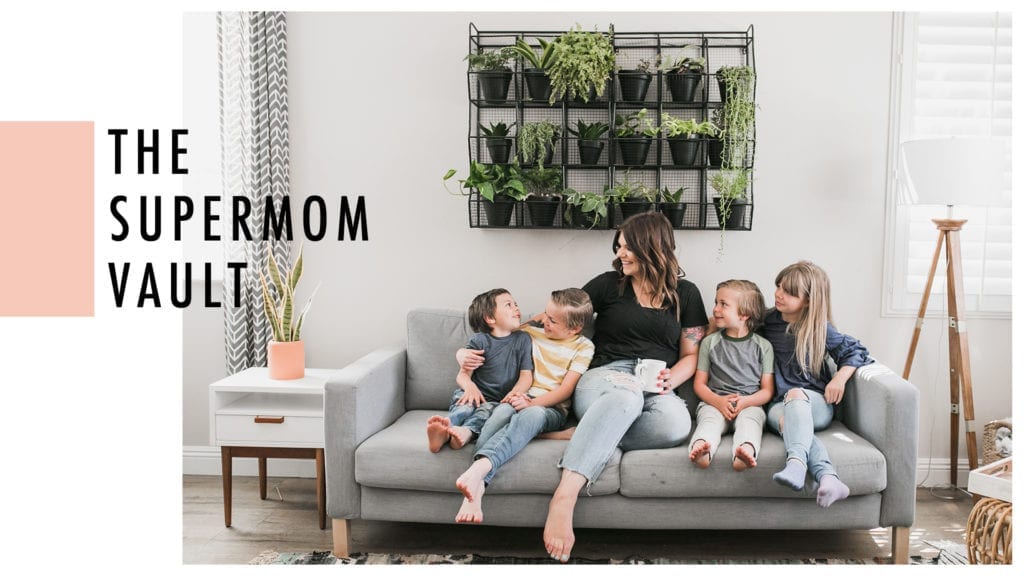

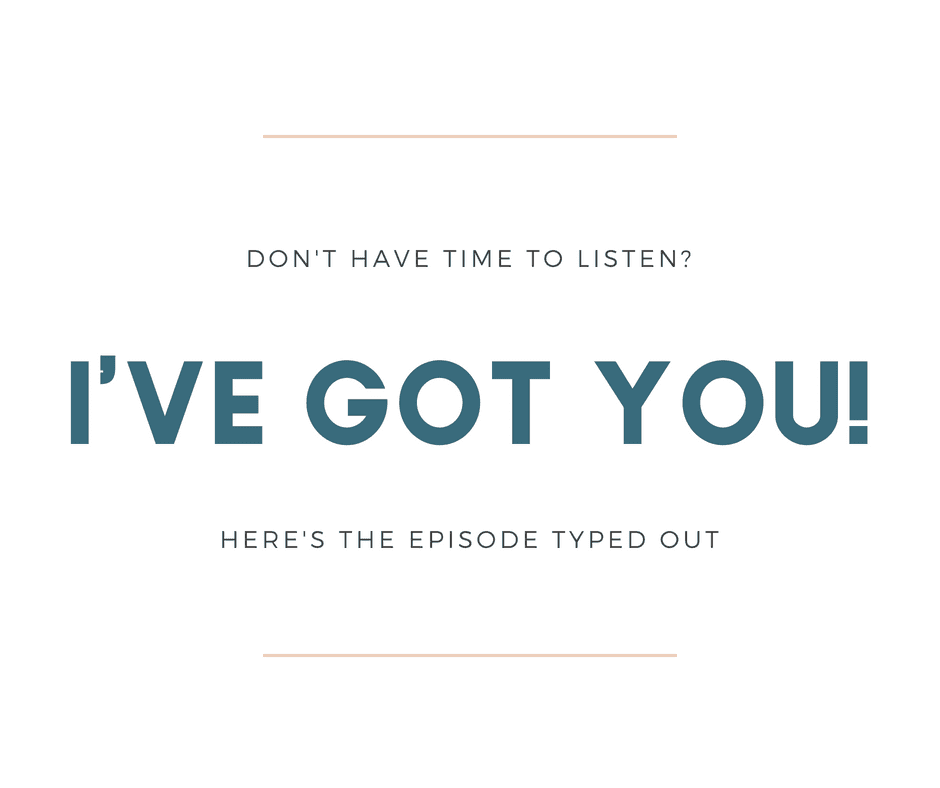

Mom life. We are surrounded with the message that it’s the tired life. The no-time-for-myself life. The hard life. And while it is hard and full of lots of servitude, the idea that motherhood means a joyless life is something I am passionate about putting a stop to. I’m on a mission to help you stop counting down the minutes till bedtime, at least most days. I want you to stop cleaning up after your kid’s childhood and start being present for it. Start enjoying it. I believe in John 10:10 “that we are called to abundant life” and I know mothers are not excluded from that promise. Join me in conversations about simplicity, minimalism and lots of other good stuff that leads to a life of less for the sake of enjoying more in your motherhood. I’m Allie Casazza and this is The Purpose Show.
_______________________________________________________________
Hey guys! I’m extra excited for this episode because today I’m bringing on my husband, Brian. He’s been on with me for a few different episodes in the past and they’re always really fun and really well received, which makes me happy.
The other day we were having a conversation around our kitchen counter and going over feedback that we’ve gotten on the topic of marriage. It’s not something that I really love talking about or feel super pulled to talk about, but it’s definitely something that has to do with our roles as women, moms and having families. It’s there and it’s something that we need to talk about. And so, when I get questions about it, if they’re really good or I feel really lead toward answering one of them, I’ll of course bring the topic to the show.
We recently have been getting a lot of questions regarding communication in marriage. It’s probably because I’ve said a few things on Instagram recently about how we’ve worked on that over the course of our relationship.
Anyway, today we’re talking about communication in marriage. How to communicate effectively when you’re different personality types. There’s different types of communicators out there, verbal and internal, and it can get tense. Brian and I know all about that, so I asked him to come on the show with me and he was really excited to do this episode.
So, let’s give a warm welcome to my hubby and dive in.
ALLIE: Hey Baby, I love when we do episodes together.
BRIAN: I like it too.
ALLIE: Okay. So, we’re gonna talk about communication in marriage. A disclaimer from both of us, I think. We have kind of shied away from talking about marriage, actually not kind of, we have deliberately shied away from it because we don’t feel like, “Oh we’re so good at this and let’s talk about it. Let’s tell other people how to do what we do.”
But it’s something that we get asked about all the time. God’s really been working on both of our hearts, wanting to open up and have a conversation, not from a preachy standpoint…
BRIAN: Maybe more from the point of we have gone through this and experienced this and now this is what we know. Everything has been good and we’ve learned a lot.
ALLIE: What works. We used to struggle with this and now we don’t. Definitely for this episode specifically, that’s kind of where we’re coming from here and it’s something that we’re always evolving in and working on.
Even just this morning I had a total meltdown and needed to communicate. It’s always a point of tension, I think, in any relationship with how you communicate. So, having said that, we put together just a few really straightforward points. We sat down over coffee together the other day to outline this episode and we were like, “Okay, what works for us? What communication stuff do we have to say?” And I came up with a few things and actually I feel like you wrote this episode more than I did. I contributed two small things.
Brian, actually that’s what always surprises me about doing episodes with you is that we sit down to do it and I think, “Okay, I’m the one that writes podcasts all the time so I’ll be the one to do this and then you just kind of show up and you’re like, “Oh, also this super wise, amazing Gandhi-style piece of wisdom.” And it’s like, “Oh, I didn’t know you knew so much about marriage now.”
Okay, now let’s get into the first point.
BRIAN: I guess the first thing that matters I feel like is knowing each other, the type of person you are, that person I am. I feel like that has fixed and helped so many things in our marriage. Knowing, first of all, there’s two different tests. I forget what they are.
ALLIE: The Myers Briggs and Enneagram.
BRIAN: Ok, so we did both of those and then knowing you’re this type of person and I’m almost the opposite. So, we worked together well. But I know how you are and I know the things that you like, that you don’t like, that bother you, that don’t. And you know those things about me. So that helps when we break down the communication with those things.
You like it when you’re talking to me and I’m doing certain things to show you that I’m listening. Whereas, I don’t have to have those same things when we’re talking.
ALLIE: It doesn’t bother you if I’m cooking at the same time as listening to you. Or sometimes even if I’ll be in the middle of writing an email and you’re talking about something, I can still retain what you’re saying, usually, while I’m writing that email. For me, I think it’s half that I’ve seen proof that you can’t do that and retain it and half that it’s just a quirk about me that I really like it when you are looking at me and showing me “I’m listening. I’m engaged. The noise that the kids are making isn’t affecting me. I’m here and I’m focused on you.” It really helps me feel loved and listened to.
I think also that Love Languages is a huge thing, knowing that. Even if it’s not directly related to communication, just knowing that about each other helps and communication types. So, for an example, I’m an external processor. So, guys when I’m dealing with something or I need to work through something, the way that I do that is by talking it out, out loud. I don’t really know how I feel about something until I’m talking it out. Then I realize where I stand with something or what I should do about a problem while I’m talking it out. I don’t usually need Brian to help me or fix it. Actually, I really don’t like it when he tries to do that. I just need to talk it out to somebody.
BRIAN: And I am the opposite where if I hear that then I’m thinking, “Okay, you want me to fix this problem. Or there’s a problem or there’s some sort of advice or solution that you want.” I’m just that way where I want to fix it right away or I want to help you right away. So, I have to know that you’re like that or know that you’re talking to me in that way so that I don’t make you feel not listened to by just trying to solve your problems and have it be done, because you just want to talk it out and talk about it.
ALLIE: Yeah, and I’ll say, “Okay, I do kind of want to talk out what I could do here.” I’ll tell him I want his input.
For Brian, he is a very internal processor, physically, all-the-time internal processor. So, something will happen or I’ll be saying something and it looks like he doesn’t care or he’s zoned out, but he’s just thinking. He’s processing it. And that’s really hard for me.
BRIAN: Before we knew all this, that caused a lot of communication fights.
ALLIE: Maybe even our #1 fight because it was just so hourly that that would happen. Especially, too, after you quit your job and we were home together all the time. I noticed a big spike. That’s when we figured it out – “Okay, we want to be home all together, all the time, and give our kids this great life, but it’s not great because we’re fighting all the time.” It was stuff like that. Just figuring out stuff like this.
And so, knowing how each other is and then respecting that and I think coming up with an agreement like who’s going to give in here? Are you going to kneel towards what I need or am I going to kneel towards what you need? Finding a balance for yourself as a couple.
We’ll link in the show notes to the personality tests we mentioned. Especially the Enneagram. I feel like it’s more helpful than the Myers Briggs. It was really helpful. And in case you’re wondering, I’m an 8 and Brian is a 2, so we compliment each other and also opposite.
It really comes down I think to respect because being opposites can be good, unless you’re disrespectful, then it just becomes “I’m better than you” or “you’re better than me.” It becomes a finger pointing fest and it sucks and it makes things hard.
Okay. So, let’s go over some of the problems with communication. We touched on it a little bit, like I feel like you don’t listen.
BRIAN: Yeah. That one was hard and that’s been a problem a lot. What we’ve figured out and worked through is that I’m listening when you’re talking, but if I’m not showing you physically, then you feel like I don’t listen.
ALLIE: Right.
BRIAN: And I get frustrated because I’m listening, but that’s just the way that you are. You have to see me listening.
ALLIE: So, here’s a practical way that we have handled this problem. When I feel like Brian’s not listening, I will just ask, “Are you listening?” Or sometimes I’ll say, “Hey, are you able to listen to right now?” It’s more respectful. I know that you have a life and stuff to do. I used to just walk in and be like, “Okay I’m here!” I’m definitely more of the self-centered one in the relationship. Brian’s really giving, humble, and sweet and I just am not naturally like that.
So, I used to come into the room and say, “Okay this is what happened,” and just start with my problem. He would be in the middle of something. And so, I’ve started to ask beforehand, preemptively say, “Are you able to listen to me right now?”
And he will say “Yes” and drop everything. Or he’ll say, “Why don’t we feed the kids lunch and then get Emmett down for nap and we can sit and talk?” And I’ll wait even though I’m frustrated. We have balanced it that way. It’s not just him catering to me. Sometimes he can’t listen right now and so I will have to hold onto it and that’s just the way things are.
Okay. So, one of the other problems that we talked about was that I need to finish talking something out, all the way without interruption. And really pretty much early on in the conversation Brian will feel like he gets it, and it can be done now. “Okay. I get it.” And I have to keep going all the way until I get my whole point across. And then I just want him to be like, “Yeah, that sucks.”
BRIAN: I’m like an interrupter where right when you say something that I have on my mind, that I can answer that thing right then. Even though you wanted to finish all of your stuff, I want to say something about that thing.
ALLIE: Or you see where I’m going with it and you’re like, “Good. I got it.” But then that makes me feel unloved and not listened to. And that’s been like a big one for us. What would you say that we do about that? Because I feel like we don’t really struggle with that as much anymore. I feel like that one I would say, I don’t know about you, but I would say that with that one that’s been one that you have to kneel and give in to. I’ve cried over that before. “Just let me finish!” It’s frustrating. And so, you’ve learned to let me finish. And once I get it out, that’s all I needed to do. Would you agree with that’s how we’ve solved it?
BRIAN: Sure.
ALLIE: Okay. Do you want to go over your problem that I have that’s hard for us?
BRIAN: Yeah. Figuring out problems or you coming to me with something, I just sometimes need to sit and think. Or even have time by myself for a minute to sort it out. It’s how I figure things out. You have a hard time with that. With all the tests, you know more about me now, know the type of person I am, the way that I am, and you understand. Just like how I understand you have different things, you understand that I have different things and we work with each other back and forth, you know?
That’s one of the things that you give me a little bit of space to solve something or just think it out in my head. But I have also come to understand that you like to talk things out, even when you’re processing something, talking it out while you’re thinking about it, I will kind of do that with you if we’re both trying to figure something out. Because I know that’s how you are, I try to put my thoughts out so you see what I’m thinking, how I’m thinking, so we can work together instead of me thinking about it and coming to you with an answer.
ALLIE: And I appreciate that so much. I can’t even tell you. It helps me feel really loved and known. And also, it’s funny because it’s like you are “externally processing” and you’re not. You’re just repeating the problem. So, Brian will be trying to join in and make me feel like “Okay, we’re gonna work through this together,” and I will externally process, popping out possible solutions. Even if they’re crazy, I’m just working through it. He’ll just keep repeating the problem. “Okay, she sent you this text and it really upset you and you’re really annoyed about it. Okay. So, she sent you…you got a text…” He repeats the problem and it’s so cute because he is trying.
Okay. But I think, too, we’ll have things where if it’s something that we need to make a decision on, we’ll table it – even though that’s so hard for me – because you need to process internally, and because how you feel about the thing really matters. Like if it’s not something that’s just for me, for example, if I did get an upsetting text from a friend and I didn’t know how to respond, that’s really my problem. It’s nice that you care and you want to listen to me. It might help me form a response, but that’s really my problem. But if there’s a family thing that we have to work through, it matters what you think. It matters that you have space to get to a point where you know what to do or you know how you feel because you don’t even know how you feel at first. That’s what you’re processing, right? Just letting it sift a little bit. And I don’t need that.
I see the balance. It depends on what it is and who needs precedence here. Who needs what. Whether we take a beat or we just dive right in and start, I’ll externally process it.
_______________________________________________________________
Do you feel like you are barely getting through your days friend? Does motherhood feel more like a hurricane of chaos that you are just surviving rather than the awesome, joy-filled season that you want it to be?
Well, motherhood is hard. I am not going to lie to you about that. While it is servitude and giving to your family from yourself, it doesn’t have to be something that we are waiting to be over. Something that we are counting down the minutes till naptime, or bedtime, or waiting for the next day to start. If you are wanting to sort through the clutter in your mind, your heart, your home calendar, your health, routines, and relationships, I created Unburdened just for you!
It is a guide that will help you go from drowning in the sea of stress and overwhelm, to owning your time and living the best version of your motherhood. So you can live abundantly while intentionally focusing on those who matter most.
Unburdened is the overwhelmed beginner’s guide to a simpler motherhood.
In Unburdened, I will walk you through how to stop over-complicating, procrastinating, and just start making positive changes now. How to declutter, just a little bit – not super deep into it, because you can’t handle that when you are this overwhelmed – but a surface declutter that will get you real results in your house so you can clean up less.
How to declutter toxic relationships in your life and set some good boundaries. How to simplify cleaning, get healthy and feel better – finally!
How to simplify your calendar. How to start owning your time and not just managing it as life happens to you.
How to stop just setting goals and letting them sit there. Start actually defining where you want to go and getting there through reverse engineering and goal-setting.
How to create a cleaning routine that works for you and your life.
This course is a mini-course. It is small. It is straightforward. But it is everything for the mom who feels like she needs a total overhaul, but is too overwhelmed to start.
It will help you simplify the things that have you stuck and leave survival mode behind for good.
Is this resonating with you? Sound like you? Does this sound like something that would really help you right now? Go to bit.ly/getunburdened.
I really poured my heart into this little course. I created it for the mom who is really wanting to simplify, declutter, and pursue a life of less, but she is so burdened and overwhelmed with the mess of life. It’s not just her house. She wants to simplify at the surface of all the different things in her life so she can focus on her family more. So then she can focus more on really, truly purging her entire house.
If this sounds like you, I encourage you to check it out. You are probably the person I created it for. I want you in there. I want it to help you.
Check it out. bit.ly/getunburdened
_______________________________________________________________
ALLIE: And so, kind of circling back to the problem that I think most couples have, it’s a communication problem, but it’s also more of a male/female problem. It’s that I want Brian to listen and not try to solve, and he wants to fix it.
BRIAN: I understand that. And I can do that. Even the other day, you talked to me about a bunch of things that were bothering you. I so badly wanted to just answer because I knew the solutions to some of them. I wanted to say, “Okay, do this, do this, do this, do this,” but I held it back and sat and let you finish. Then later you came to me and we talked and I helped you with some of those things.
ALLIE: It’s not that I, or we as women, never want help; we’re just not ready for it yet. I have to just get it out. It’s almost like a venting session. Even if you have an amazing fix-it solution, I just am not ready for it. I know it’s weird, it’s weird to even say it, but it’s just how I feel. It makes me feel unloved when you give a solution at that point, even though you’re like, “If this will just fix your problem…” I just don’t want it. I’m not ready.
BRIAN: I am just like that. When I’m thinking of something, I just want to think of the solution.
ALLIE: Yeah, well maybe it’s logical but it’s just not how I operate. So, coming back… we listed the problems and kind of grazed over what we do about it.
But I really think, like Brian said in the beginning, understanding how one another operates. Brian knows to look at me and show physically, in some way, that he is actively listening. It’s not like he doesn’t do anything and just stands there and stares at me. If he’s making the kids’ lunch while I’m talking and I’m really stressed, I’m just talking about a problem or something, he’s actively making eye contact. As he makes the kids’ lunch, he’s looking up every few seconds and showing me that he’s listening. Maybe repeating what I said a couple times to make sure he understands and it just really helps.
And if I’m venting something out or externally processing something, I’ve learned to say, “Okay, that’s it. I’m done talking about this.” And then I’ll say, “So what do you think I should do,” if I’m open to solutions. If I don’t, then he knows to wait. So, he is giving me what I need and I’m also giving him cues because ladies, men are not mind readers and they can’t know what you want.
So, having those marital cues where you say, “Okay, that’s it. I’m done talking about this. I don’t want to talk about it anymore,” and leaving is so much better than having an argument, like, “Can you stop? Why do you have to fix everything?”
Saying “I’m done talking now; what do you think I should do” is such a great cue for him to go ahead and offer solutions. I just think it really helps. We’ve had conversations where we decided we would do these things, and now we do them. It helps to have open communication about your communication.
And I’m learning to let him process internally and not demand talking right away. I would say that this gets stressful for me when we’re talking to someone else, like the adoption interview that we did. We were sitting there and they asked such intense questions and you’re just expected to answer. And so, they asked us, I forget exactly what it was but it was a really personal, intense question. I’m sitting there and Brian’s literally just sitting and staring. And I’m like, okay, I guess I’ll take this one.
I can see that he’s internally processing, but I’m wondering if this lady thinks that we’re keeping a secret or we did something bad in this area and we don’t want to talk about it. And he’s being weird and silent. So, then I fill the silence trying to make it not awkward and just start spouting off all of this personal information to answer her question. Then Brian put his hand on my leg and took over with the wisest, calmest, most wise answer ever because he just needed a minute.
So, I think it’s funny that I’ll get stressed when someone else is present. If we ever did a press interview together, I think it would be hilarious because I’d be like, “Oh my God, answer!” It’s just funny.
But everyone is different and I think that those differences sometimes need to be worked on honestly. And sometimes they just need to be celebrated and bent over backwards for. Because you’re married and you have to make this work, right?
Yeah. Okay. So, you want to go over the last point. This is not really, really exactly communication, but I loved that you said this when we were talking and it’s definitely important.
BRIAN: Okay. So, you know, there’s a lot of areas that we used to have problems with or fight with communication and I feel like we’ve figured out solutions to all of those things. If there’s something that we’re talking about or that’s a problem, we won’t just let it “be there.” We were driving somewhere the other day and we were starting to argue about it and we stopped and pulled over and fixed it before we even continued going instead of “deal with this later.”
ALLIE: Yeah. We pulled over, paused and just talked it out while the kids played in the car because it was going to ruin our day. We’re on our way to a fun family day. And guys, isn’t that when things always happen? Like you’re going to have a really good intentional day as a family or date night as a couple. And it’s like the enemy just gets in there and makes a problem.
And it’s like, “No, we’re not going to let that happen. We’re not going to ignore this or push it aside, but we’re going to deal with it like adults and just pull over. Calm down and just work it out.” It’s so often just a miscommunication and the way to fix those miscommunications (it can even be a miscommunication of body language even) is to (hypothetically and literally) pull the car over, press pause and check in. What do you think I’m saying? How are you feeling? And then that was one of my points, like for me to say, “I am feeling like you don’t care about my feelings or you don’t care about what I’m saying.” And for Brian to say “That’s not it at all. I’m sorry, I just looked at my phone because I’m waiting for a really important phone call about our finances or something,” whatever it was. It’s just a miscommunication so much of the time.
BRIAN: Yeah. So, another big thing that we figured out and the way we will communicate and talk about fixing a problem or if we’re having a problem, is really digging down and finding where the root of this is coming from. Because a lot of times, we will be fighting and it’ll be completely about the wrong things, where we won’t even know what it is. We have to stop and say, “Hold on a second. What’s the root problem?”
Digging down and getting down to that point instead of surface or temporarily fixing it. “Oh this is just fixed for now or maybe I don’t want to deal with it right now” or whatever. But actually, it helps so much. Just spend the time, go all the way down, figure it out, and then it’s just done, figured out. It’s made us closer because we have both worked through it in a way.
ALLIE: Instead of just trying to sweep it under the rug. The only way over it is through and just working through it.
And I think also talking about getting to the root of the problem, it’s easy in a marriage – especially when you’re like us and you’re together all day, every day – it can get easy to poke at each other and make snide remarks if you’re frustrated, or to be honest, kind of sick of each other, maybe a little bit. That’s rare for us, but every once in a while there’s a lot going on and we’re involved with each thing about each other’s lives all the way through, and that’s just a lot on a marriage.
So, I think sometimes making it easy to poke at each other and irritate each other or say something negative to each other when you really need to get to the root issue. What is the actual problem? “Well, it really hurt me this morning when you said this or I felt like you didn’t care when you did that and that’s why I’m having this attitude towards you today.”
And then it’s like, “Okay, well then let’s talk about that.”
BRIAN: And then it’s so much better when we dig down and just work it out.
ALLIE: Exactly. I know this episode is about communication and marriage, but just saying in general to communicate with each other about everything is so huge. It’s everything. You’ve got to be able to come and say, “I really need to talk.”
I know at any time if I come to you and I say, “I’m really frustrated. Can we just talk about this?” It might not be right then and there, but we’ll talk about it. You’re willing to at least hear me out and I’m willing to hear you out, even if it’s something that I don’t think is a problem, I didn’t understand, or I don’t really want to talk about.
And we do that for each other. And that kind of goes into making time for that. Not going a long time without talking, which was hard for us when you were gone all the time. But we always made time for that. Just staying connected, communicating, being honest about how you feel, but being honest respectfully and lovingly. I think that is how you have successful communication. Even when there’s flaws, even when there’s disagreements, if you can communicate and you openly communicate, that’s where you have successful communication.
BRIAN: Especially, when we’re both having that understanding of we’re both “like this” and “like that” and we’re going to work on something or talking whenever we come together. Having all these tools and knowing all these things about each other, it just makes it so much easier.
ALLIE: Yeah, and I think successful communication in your marriage is not perfect. It’s just there.
BRIAN: We’re still learning. Every time we communicate about something, we get better and better and better at it. We learn more and more and more and better ways to do it and figure things out. I know that’s just the way it’s going to keep going.
ALLIE: Yeah. For sure. It’ll never be perfect, but I think what matters is that it’s there and that communication is existent and it’s happening.
_______________________________________________________________
This was an episode of The Purpose Show. Did you know there is an exclusive community created solely for the purpose of continuing discussions surrounding The Purpose Show episodes? And to get you to actually take action and make positive changes on the things that you learn here? Go be a part of it. To join go to facebook.com/groups/purposefulmamas.
Thank you so much for tuning in. If you are ready to uplevel and really take action on the things I talk about on my show, and get step-by-step help from me, head to alliecasazza.com. There are free downloads, courses, classes, and ways to learn more about what the next step might look like for you and to focus on whatever you might need help with in whatever season you are in right now.
I am always rooting for you, friend!
See ya next time!
Hey mama! Just a quick note, this post may contain affiliate links.




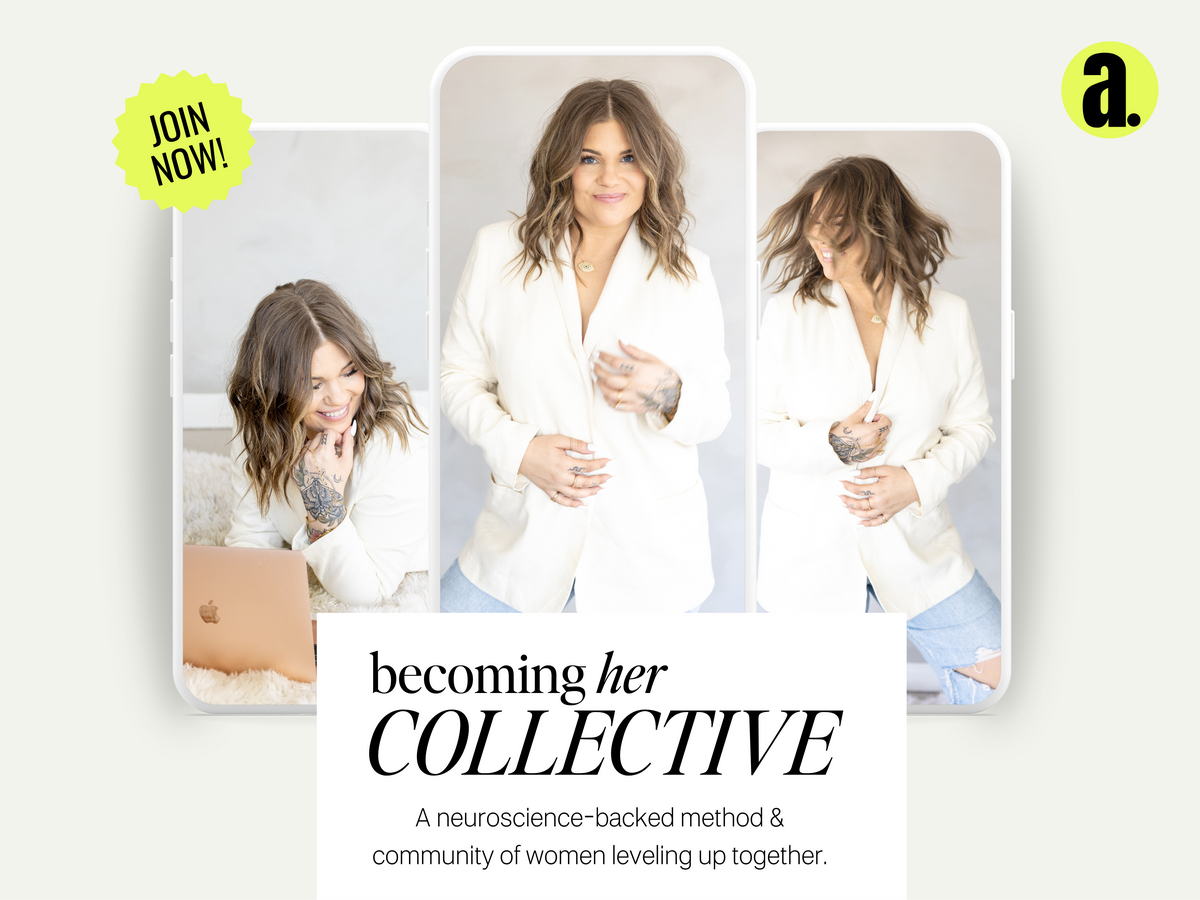

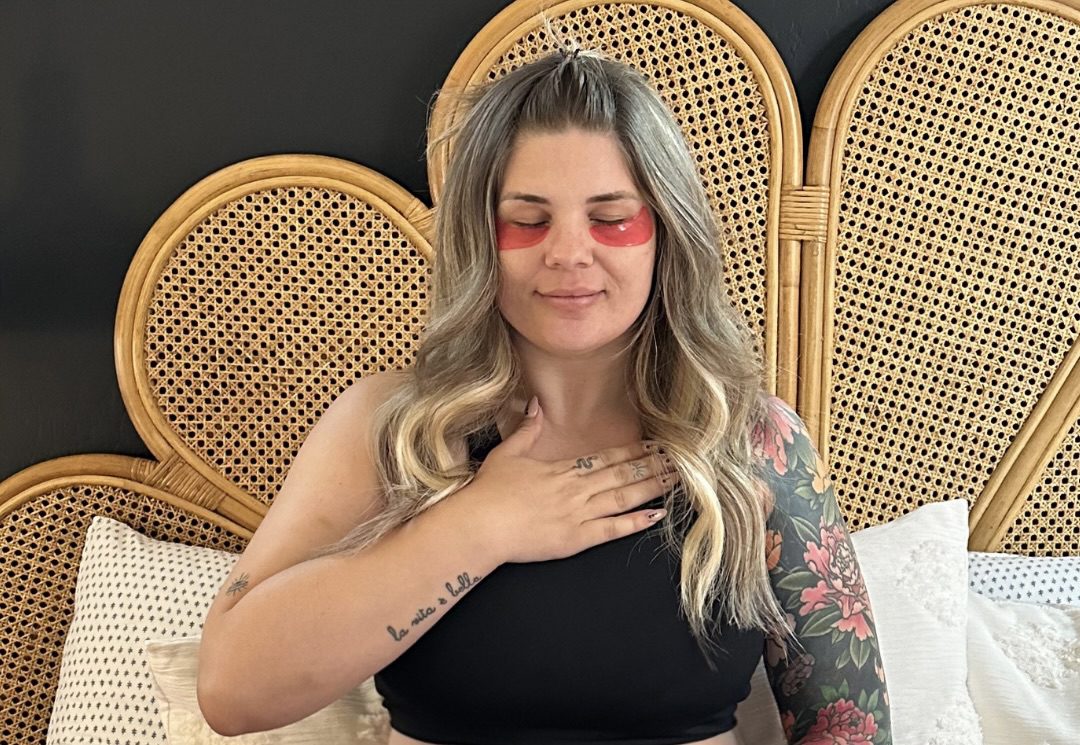

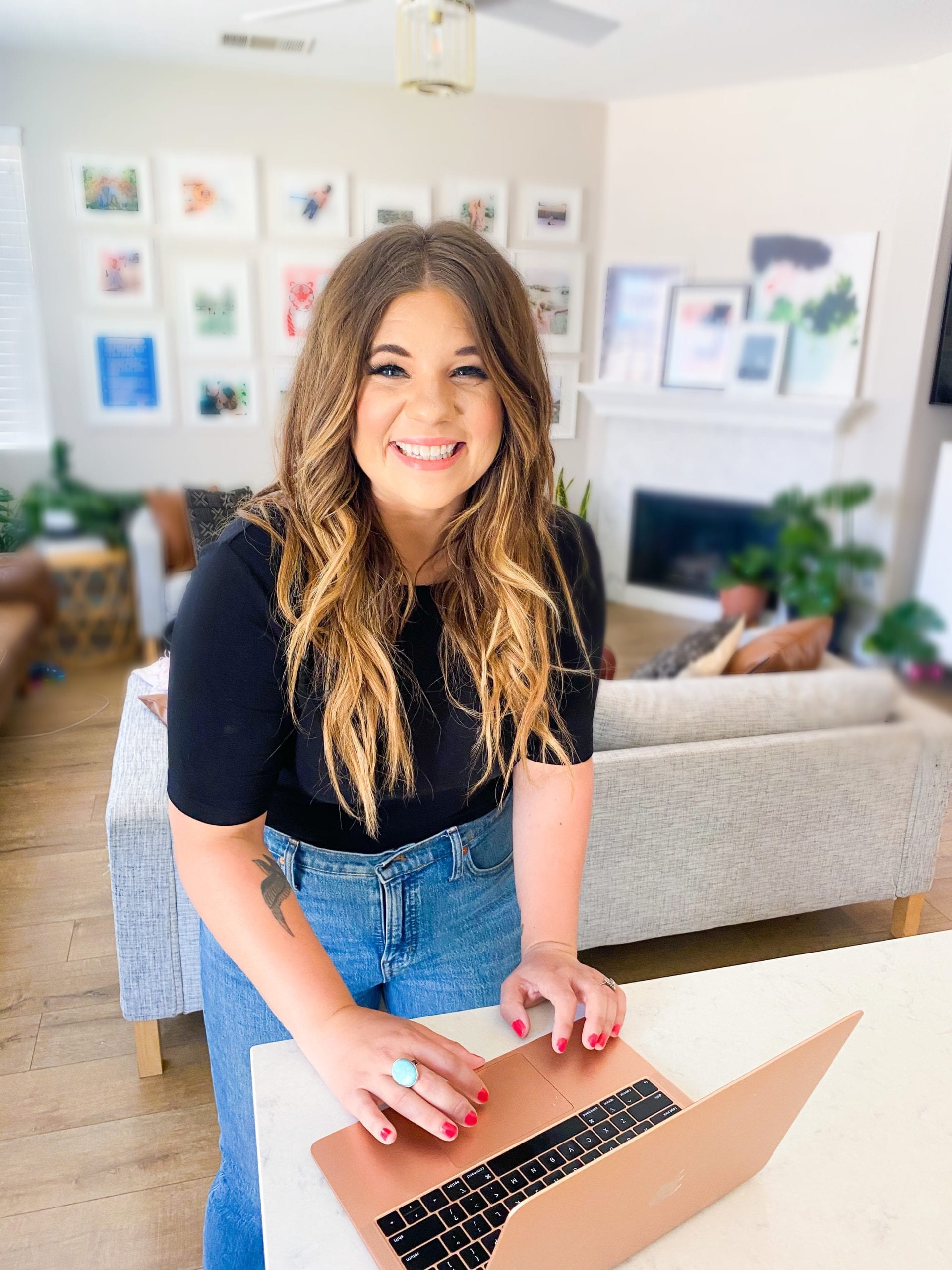

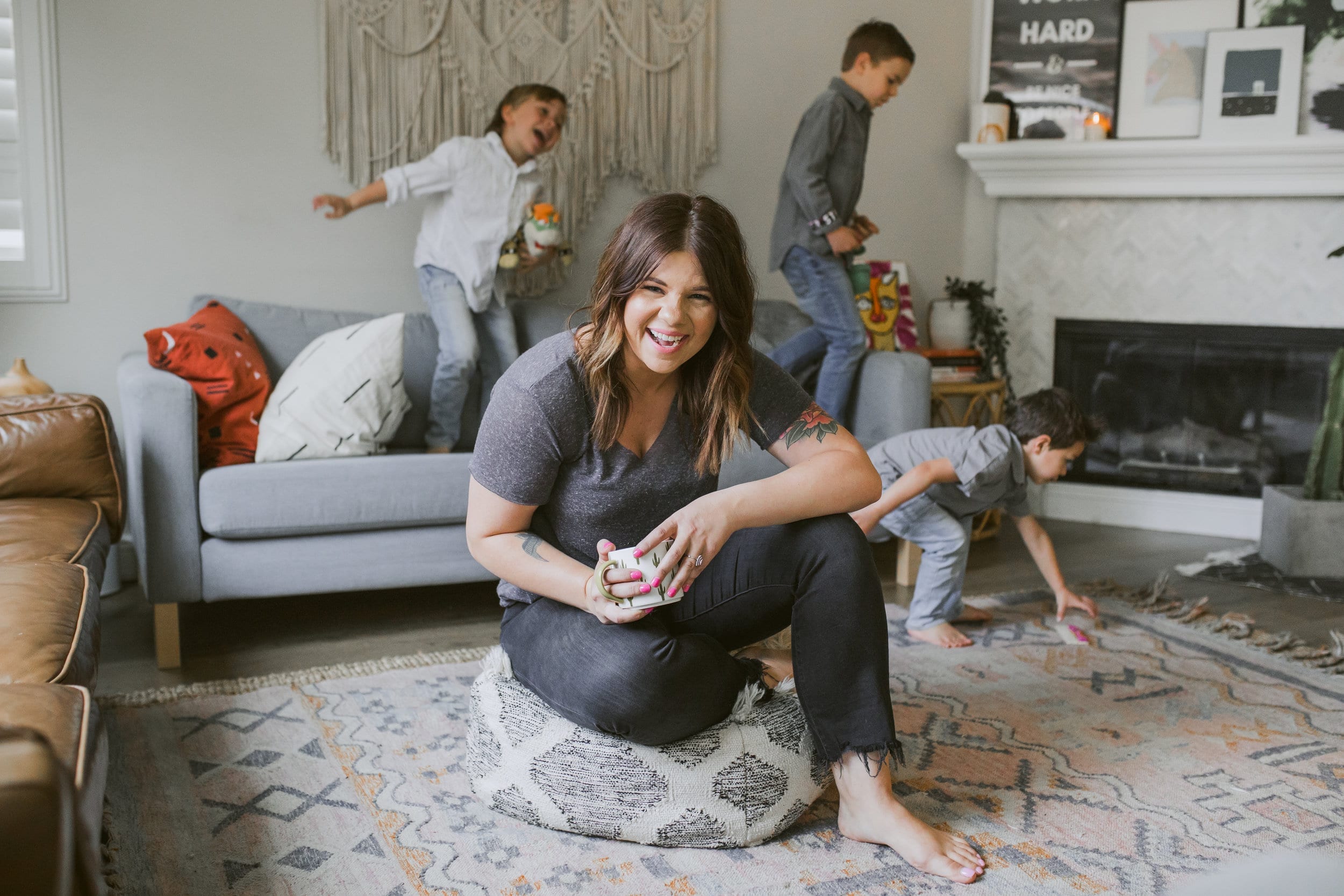

+ show Comments
- Hide Comments
add a comment